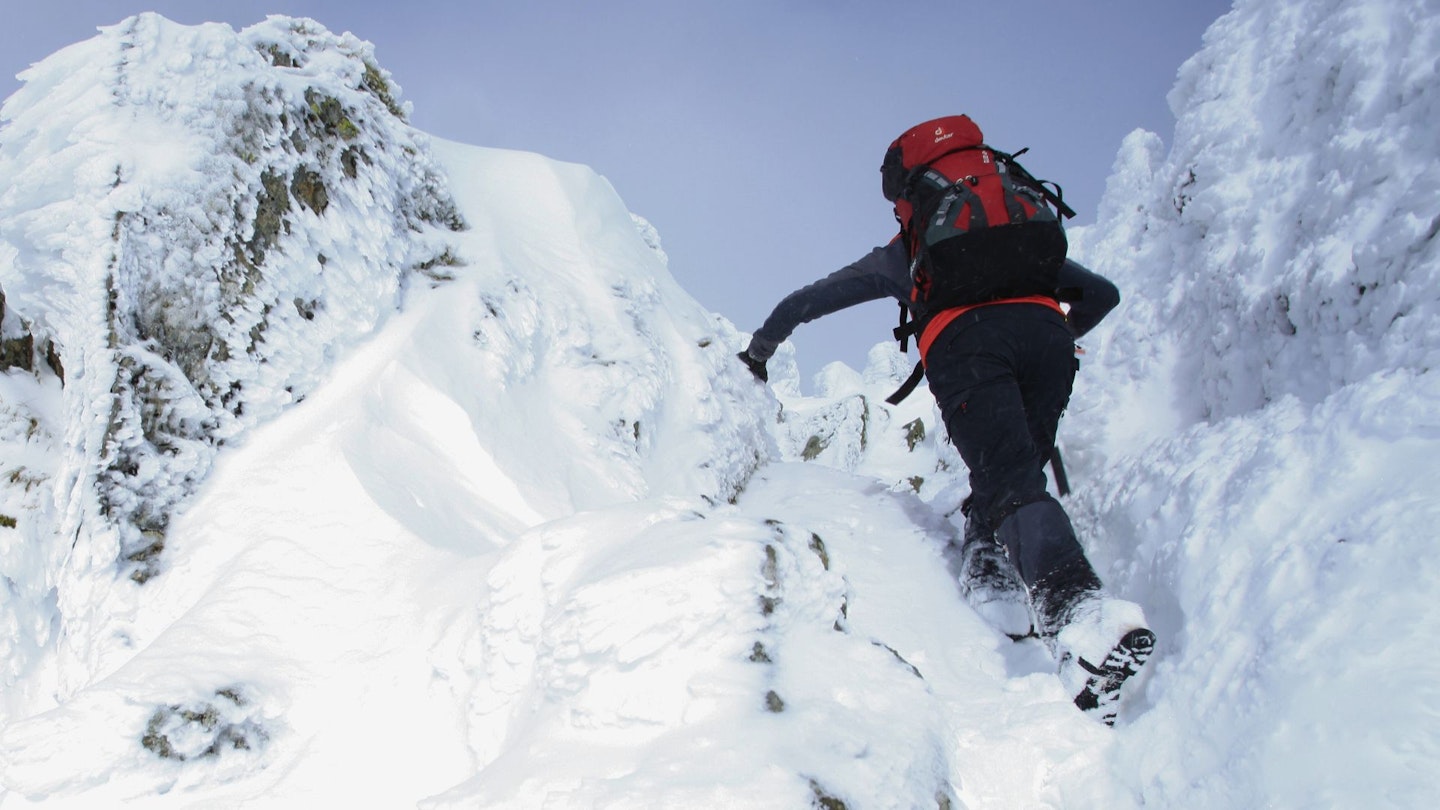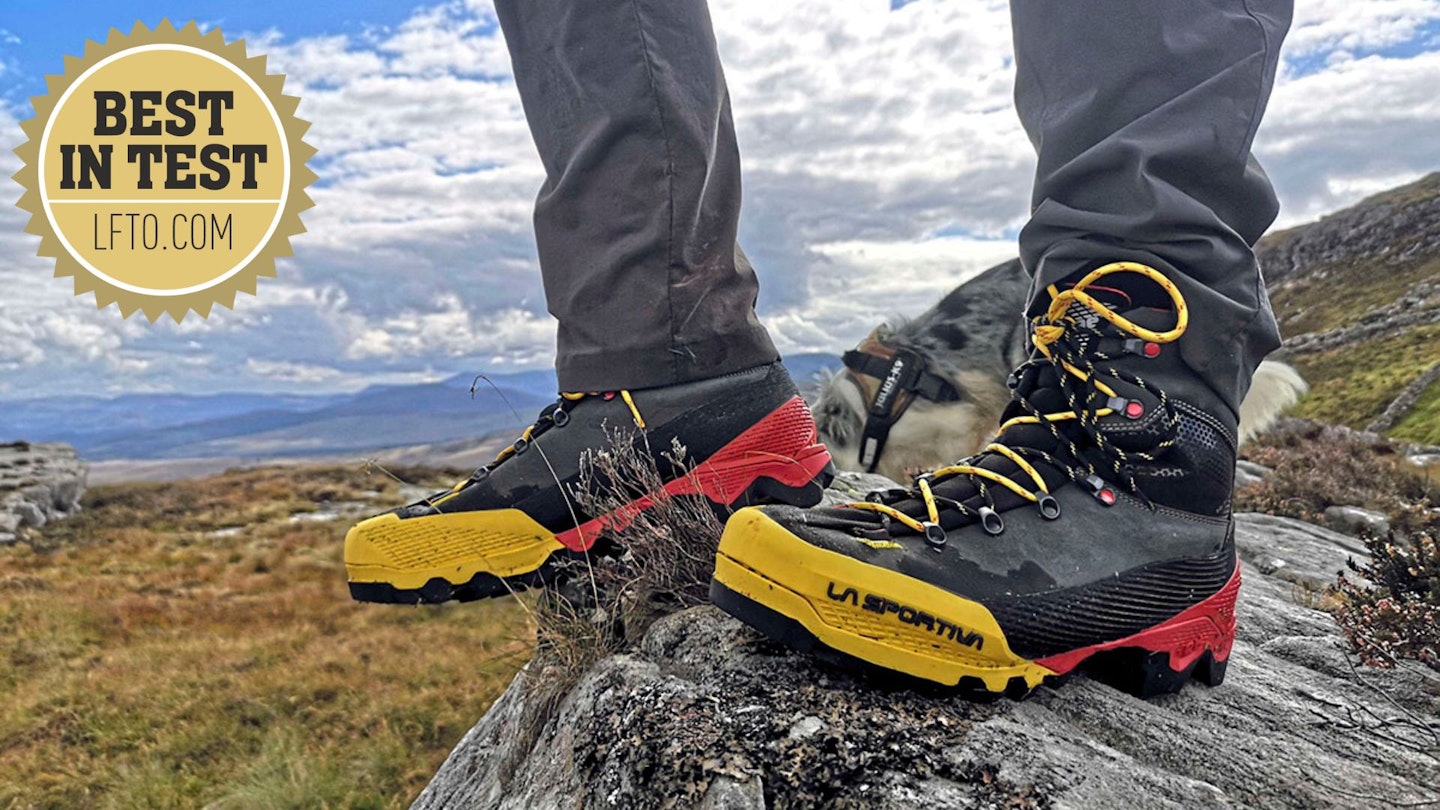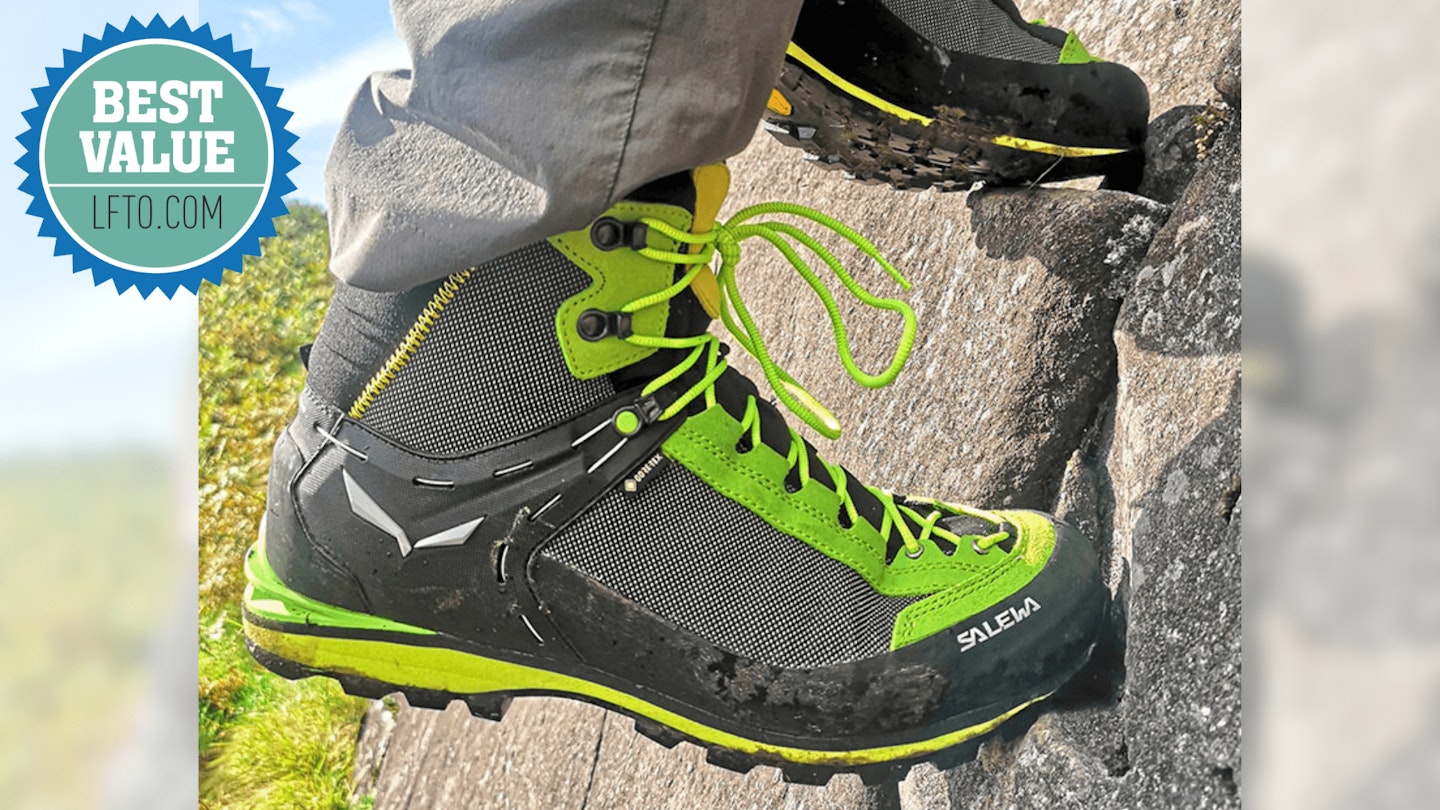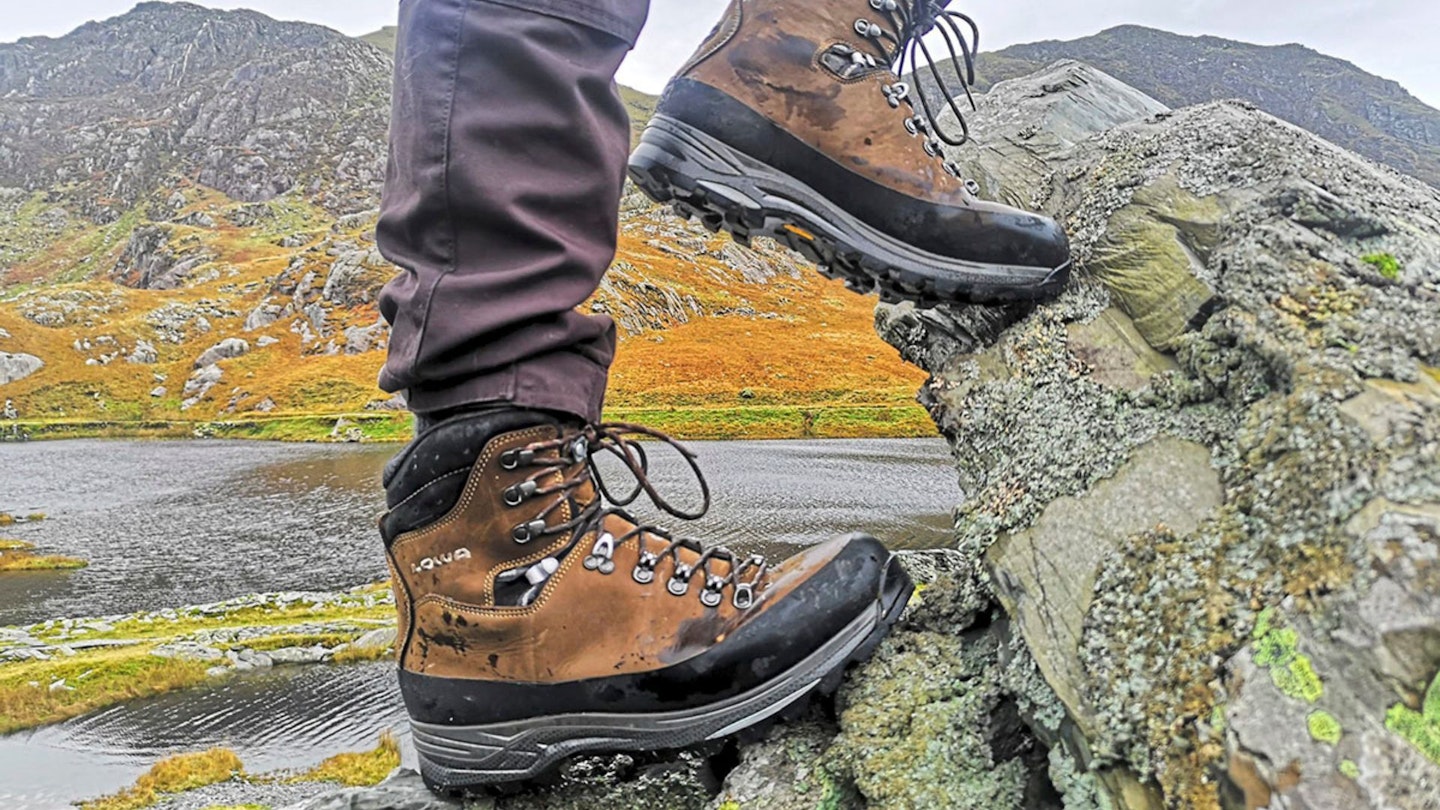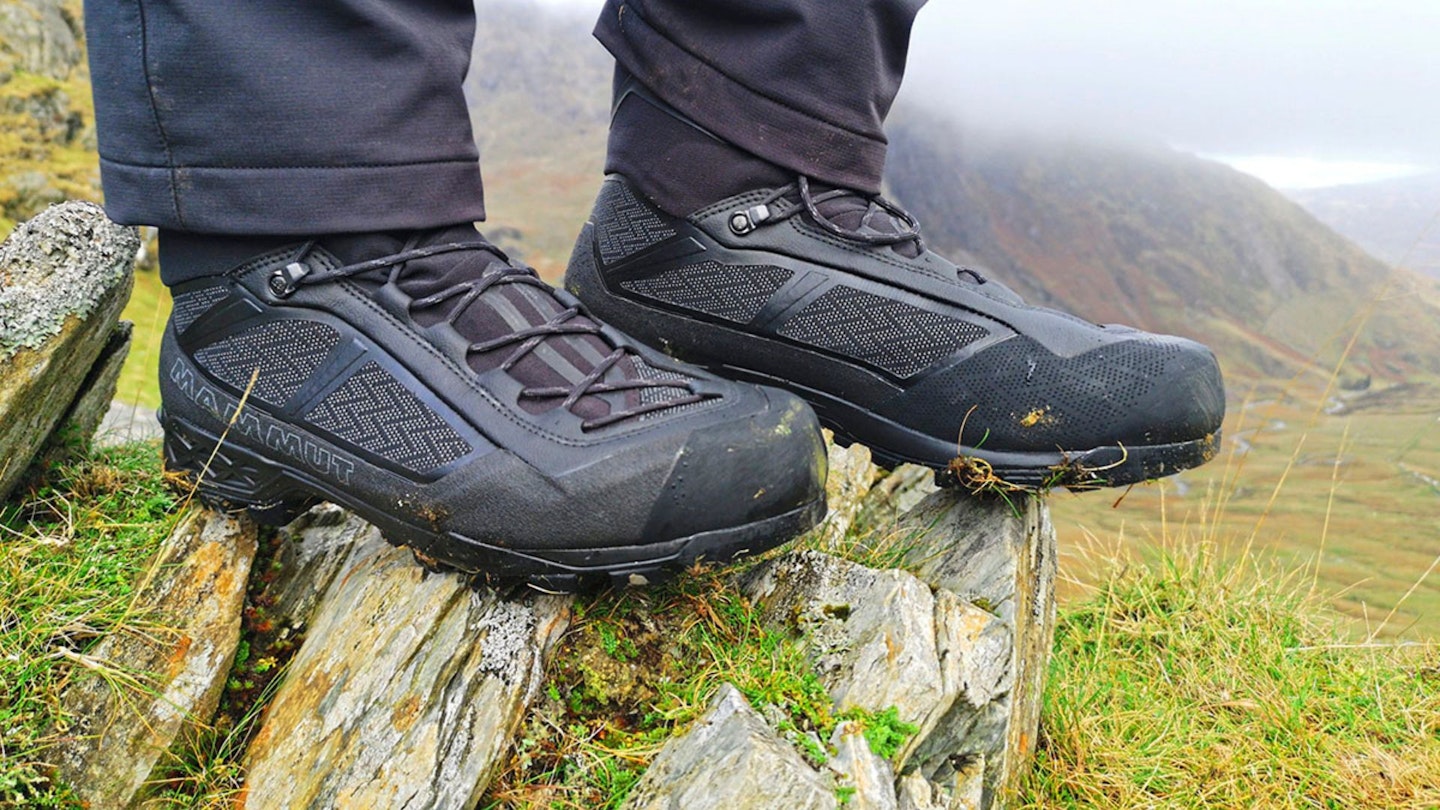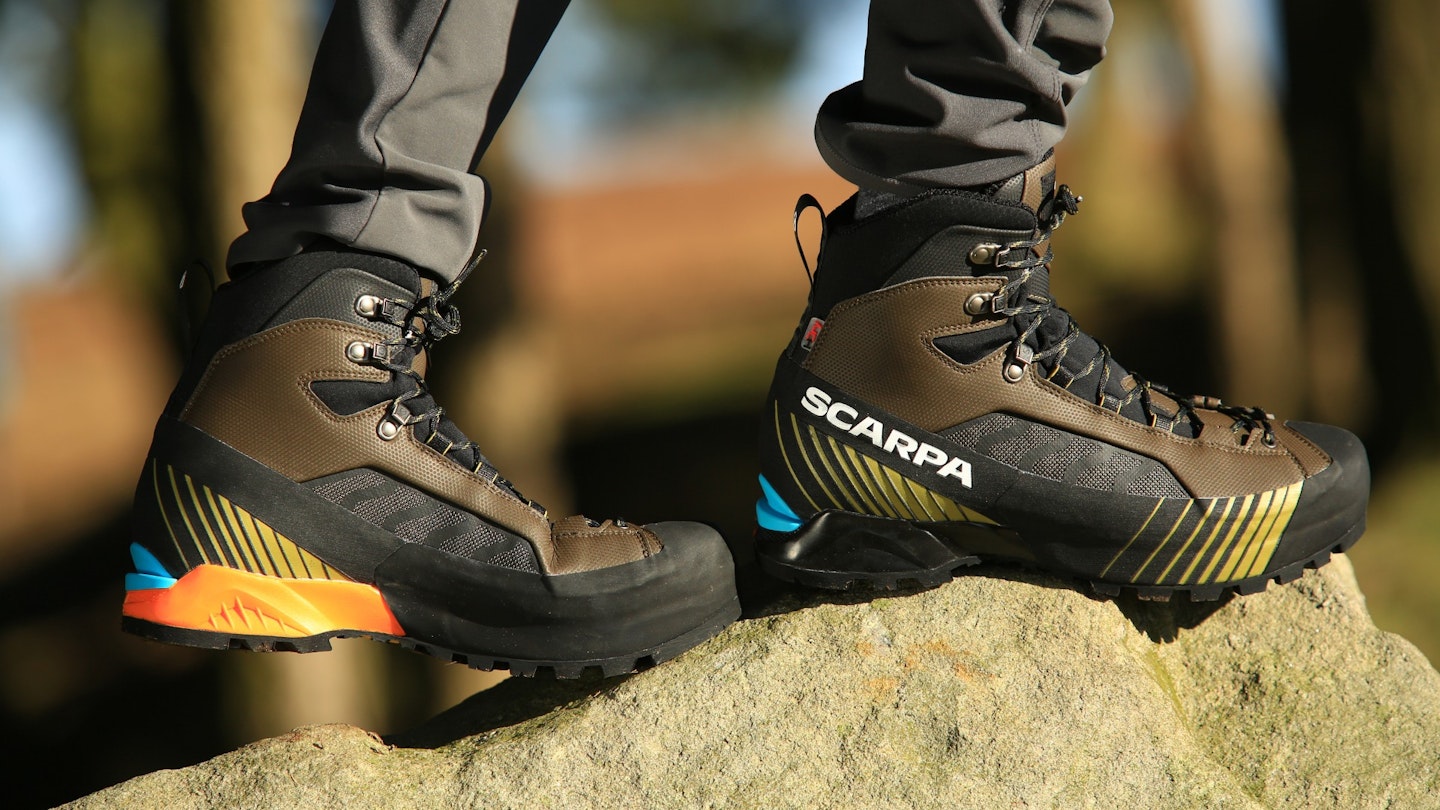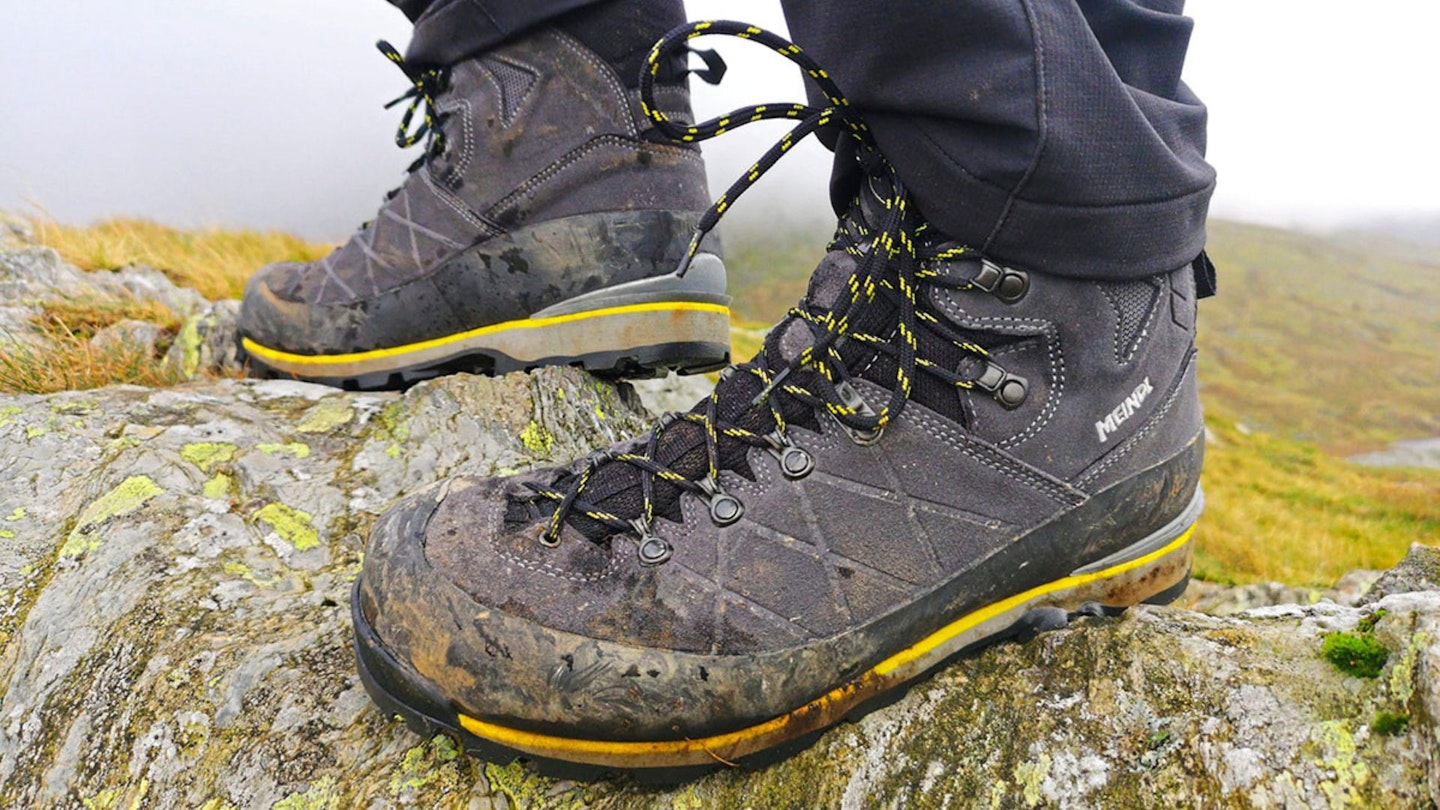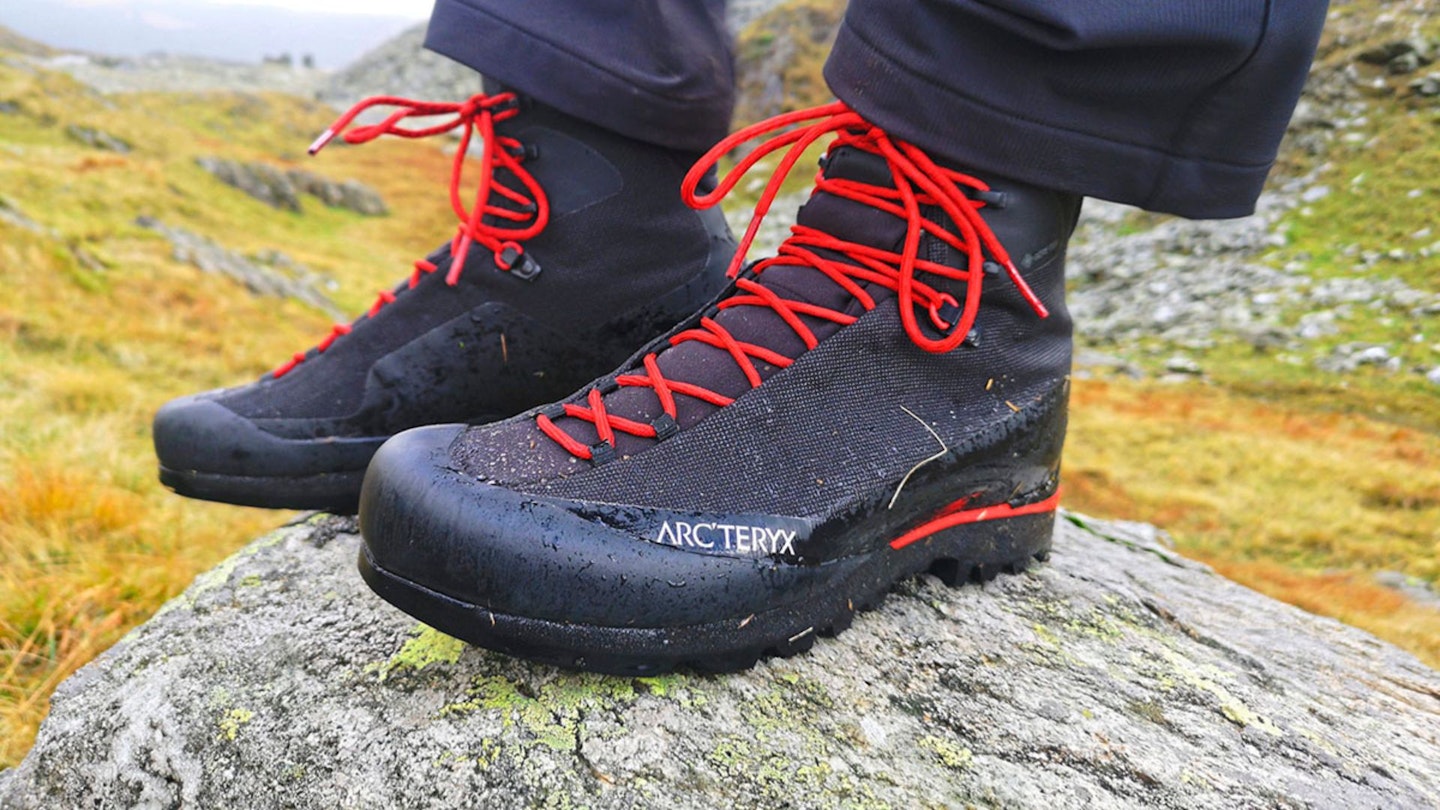The best winter hiking boots offer unique qualities: reassurance and security. These traits give you an air of confidence in your next step. Get these in addition to some other key ingredients, and you have the perfect all-round winter boot for the mountains.
Winter hillwalking and mountaineering is more challenging than your average hiking or backpacking trip. This therefore makes it even more important that your kit is fit for purpose. So, when it comes to boots, you need more technical capability in addition to the non-negotiables of fit and comfort.
Our shortlist:
Best in Test: La Sportiva Aequilibrium LT GTX - view on alpinetrek.co.uk
Best Value: Salewa Crow GTX - view on tiso.com
Best leather winter boots: Lowa Tibet GTX - view on cotswoldoutdoor.com
Best lightweight mountain boots: Mammut Taiss Light Mid GTX - view on sportsshoes.com
For stiffness, support and sure-footed traction, crampon-compatible mountaineering boots are essential for your snowy winter expeditions. Below are our top tried and tested options, and in-depth advice on what to look for with winter boots.
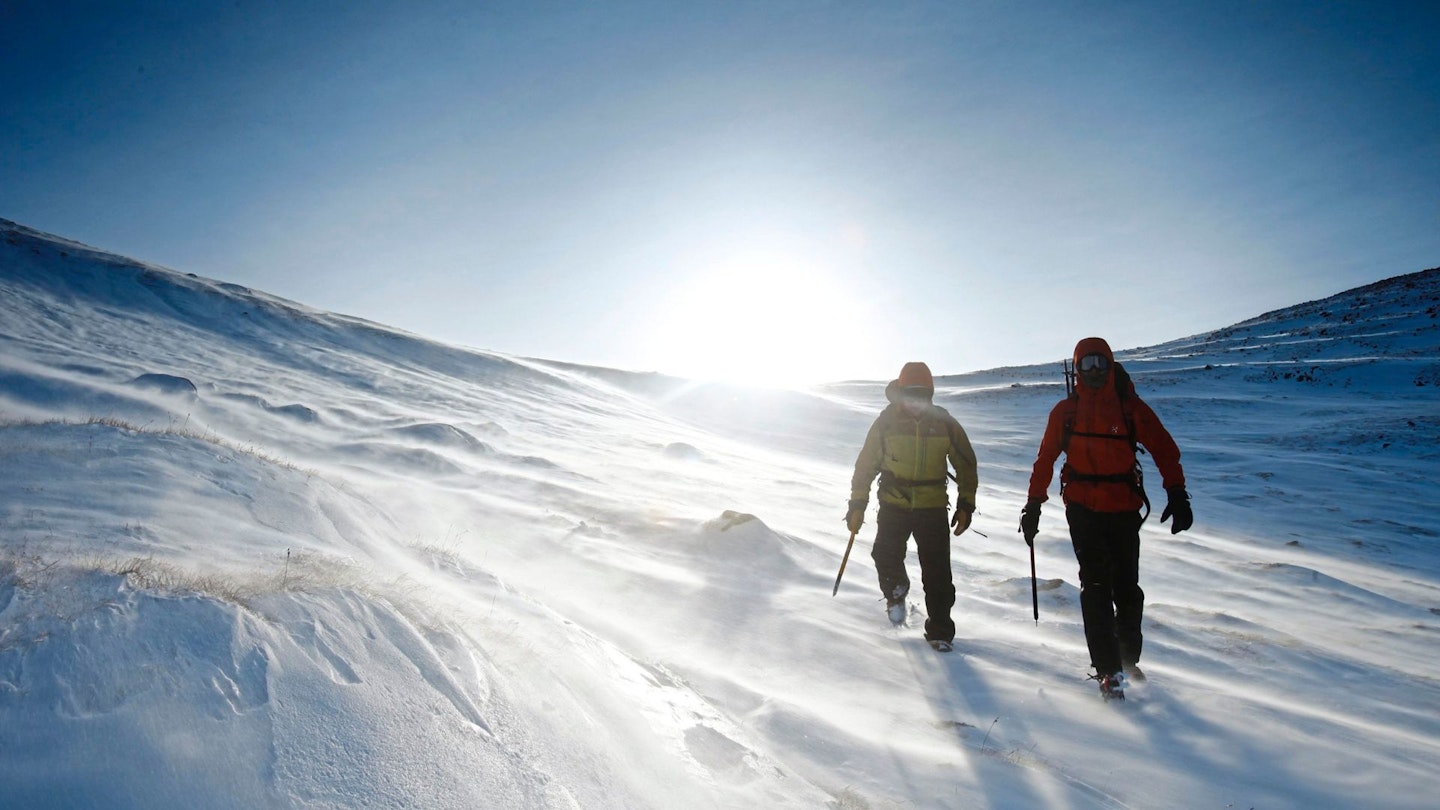
The best winter hiking boots in detail:
The ideal mountain boot should strike a balance between walking comfort, technical performance, lifetime durability and low weight, all while keeping feet warm, dry and well-protected. Despite the archaic spelling, the Aequilibrium is well named, as it ticks all those boxes.
They’re light and streamlined yet solid and well-built, thanks to supple nubuck leather uppers with a chunky wraparound rand, rigid heel counter and burly toe cap. The flexible ankle cuff has an elasticated rear gaiter to keep out snow and grit, as does the fully gusseted tongue. A shaped 3D flex system leaves space for bony ankles.
They’re built on a fairly close-fitting last for precision but are still comfortable enough for high-mileage days. This is aided by a slight rocker and a cutaway heel for a natural gait.
However, the sole unit is the most innovative element. Rather than a usual midsole layer, here the outsole has been injected with PU foam. This saves weight without sacrificing cushioning. Underfoot, the lugs are extra deep and aggressively angled. The heel brake gives exceptional downhill traction, and the softer rubber compound sticks well to rock. They’ll take a semiautomatic C2 crampon, but in terms of stiffness feel more like a B1 boot. But for mixed winter terrain they’re the most versatile and capable performers here.
The deep sole lugs and cutaway heel mean you don’t get quite as precise a fit with a crampon as with others on test.
Sustainability
La Sportiva produces its footwear in Italy and the vast majority of its suppliers of raw materials are in Italy too. La Sportiva is a little ambiguous about how much recycled material it uses in its products. However, it has been a bluesign partner since 2012, and half of its apparel is bluesign approved according to latest available report. La Sportiva is also a 1% For The Planet member.
Pros
- Ideal traits for winter hillwalking
- Relatively lightweight
- Fantastic downhill traction
- Innovative design
- Can be resoled
Cons
- Less precise fit with crampons than others
| Weight (per boot) | 640g |
| Upper | Nubuck leather, fabric, TPU rand w/ Gore-Tex lining |
| Sole | Vibram SpringLug Tech |
| Men's sizes | EU 36 - 48 |
| Women's sizes | EU 36 - 42 |
The Crow GTX is the least expensive of Salewa’s mountain boots, but it’s just as capable as its sibling, the Rapace GTX. That boot was our ‘Best Value’ pick in last year’s test, but this one’s cheaper and lighter too. The main difference is that instead of leather uppers the Crow uses mainly fabric construction. But it’s still pretty tough, with some small suede panels and a full rand for all-round protection.
It’s close fitting yet comfy, with a nimble and precise feel. The fit is slim through the heel, with a slightly asymmetric toe. It’s fairly low in volume, so will suit narrower feet – especially since Salewa provides an extra volume reducing insole in the box. A supple cutaway ankle cuff gives loads of flex, but the midsole is stiff enough to take a C2 crampon for use on snow and ice. The Vibram Mulaz outsole has a front climbing zone for solid contact grip for scrambling, and the lugs clear out mud well, despite not being particularly aggressive.
Underfoot cushioning isn’t the plushest. The lower ankle cuff limits overall protection and support. And in deep winter the fabric uppers aren't as warm or durable as leather.
Sustainability
Salewa is a Fair Wear Foundation member with ‘Leader’ status and has held that since 2017. It’s also a bluesign partner. As of 2022, almost 80% of its water repellent apparel and equipment (excluding packs and sleeping bags) are PFC-free. It uses 100% recycled packaging, both paper and plastic, and is ‘gradually increasing the amount of recycled materials’ in its products but doesn’t state exactly how much.
Pros
- Good value
- Lightweight
- Very nimble compared to other winter boots
- Salewa a Fair Wear Foundation 'leader'
Cons
- Less cushioning and protective than others
| Weight (per boot) | 675g |
| Upper | Suede, fabric, rubber rand w/ Gore-Tex lining |
| Sole | Vibram New Mulaz |
| Men's sizes | UK 6 - 13 |
| Women's sizes | UK 3 - 9 |
This is an honest and unpretentious B1 boot with an all leather upper and a high cut that prioritises ankle protection and support over flexibility. The midsole is stiff enough to wear with strap-on crampons, yet flexible enough for big hill days, making it a versatile, year-round companion.
It’s robust, stable and durable thanks to its 2.5mm nubuck leather construction, with a Gore-Tex lining and a full rubber rand. The ankle cuff and tongue are extremely well padded, ensuring high comfort levels. It has a stable but nicely cushioned feel underfoot too. Fit is generous in terms of volume, especially at the midfoot and toe. There is however a wide version of the Tibet too if you have very broad feet.
On test, our feet stayed warm, dry and comfortable. The Vibram outsole kept us well planted across a range of different terrain. The nicely undercut heel brake delivers reliable downhill traction, with blocky and widely spaced lugs that rarely clog. A generous rocker promotes a natural walking action, and the excellent dual-zone lacing system also ensures a precise fit, with no heel slip.
The Tibet GTX was the heaviest boot on test, so it feels clumpier and less agile than others, especially on steeper ground. There’s no women’s version either (the Lady III GTX is the closest).
Sustainability
Lowa produces its footwear in Europe and uses European-sourced leather that is sustainable and ‘free from pollutants’. Its primary leather supplier is Heinen, in Wegberg, Germany. The brand firmly focuses on longevity and durability of its products but doesn’t mention much about recycled materials.
Pros
- Great all-rounder
- Very durable
- Excellent comfort
- Can be resoled
Cons
- Heaviest on test
- Others better for technical terrain
- No women's version
| Weight (per boot) | 940g |
| Upper | Nubuck leather, rubber rand w/ Gore-Tex lining |
| Sole | Vibram Masai |
| Men's sizes | UK 7 - 13 |
| Women's sizes | N/A |
Mammut bills these as the lightest crampon-compatible mountaineering boots on the market. When it comes to weight, they even undercut the featherweight Arc’teryx Acrux LT. They use a similarly close-fitting, foot-hugging last and a weight-conscious construction, combining synthetic uppers with a carbon fibre midsole plate and a Vibram Litebase sole unit. This reduces the sole thickness by 50% and weight by 30%.
However, it’s still fairly stiff, and the addition of a rear heel welt means they can be used with C2 semi-automatic crampons. The result is a very capable boot for technical terrain, with plenty of precision. Edging performance is excellent, thanks to an asymmetric toe box and a flat ‘climbing zone’ for good contact grip on small pockets and ledges. The rest of the tread delivers reasonable traction, though the lugs aren’t the deepest.
The boot also has offset lacing and an elasticated soft shell one-piece tongue, to help relieve pressure on the top of the foot. A stretchy gaiter at the heel helps to prevent snow and debris from getting in, while a Gore-Tex liner keeps feet dry. Lastly, a wraparound rand and TPU ‘exoskeleton’ adds rigidity, protection and abrasion resistance. The close fit, unusually shaped toe box and offset lacing won’t suit all. Cushioning feels a little sparse, as they’re not really for big miles. They’re also expensive.
Sustainability
Mammut is a Fair Wear Foundation member, and has been since 2008. It aims to phase out PFCs from ‘its entire product range’ by 2023, according to its 2019 PFC Policy. Mammut uses Leather Working Group-certified leather. It aims to reach net zero by 2030.
Pros
- Very light
- Great for technical terrain
- Mammut a Fair Wear Foundation member
Cons
- Too specialist for some
| Weight | 550g |
| Upper | Suede and Schoeller soft shell w/ Gore-Tex lining |
| Sole | Vibram Litebase |
| Men's sizes | UK 6.5 - 12 |
| Women's sizes | UK 4.5 - 8.5 |
With Scarpa's Ribelle Lite HD, veganism is no obstacle to alpinism. This is a technical B2-rated boot (compatible with C2 crampons) that excels on challenging mountainous terrain.
In actual fact, being vegan isn't one of the Ribelle Lite HD's defining traits, but instead an excellent bonus, thanks to this boot dripping in Scarpa ingenuity.
We found that, while bearing a reasonably stiff sole, the boot's shape allows a more natural gait than some other B2 boots. This makes the Ribelle Lite HD excellent for long and challenging mountain days.
The innovative HDry membrane, replacing the conventional Gore-Tex, sets this boot apart. Laminated directly onto the upper material, it enhances breathability while ensuring top-tier waterproofing. Consequently, the Ribelle Lite HD proves versatile for alpine use throughout the year.
Comfort is another standout feature, especially in the ankle cuff area. Its full-length lacing system enables a highly personalised fit, and the PU Tech fabric is an effective alternative to a rubber rand. The Ribelle Lite HD takes the fight to our Best in Test La Sportiva Aequilibrium LT GTX. It is an exceptional and well-rounded choice.
Sustainability
Scarpa has quite a local manufacturing and material supply, with 60% of its products being made in Italy (including the Ribelle Lite HD) and 90% of its production chain being European. Much of its hiking footwear is also resoleable, ensuring a much longer life of those products.
Pros
- Intelligent features
- Impressive alpine performance
- Can be re-soled
Cons
- Suitable for avid mountain hikers only
| Weight (per boot) | 655g |
| Upper | Tech Fabric and Microtech w/ Scarpa HDry lining |
| Sole | Pentax Precision III and Vibram |
| Men's sizes | EU 40 - 48 |
| Women's sizes | EU 37 - 42 |
With tough suede uppers, a Gore-Tex lining and a full rubber rand, the Antelao Pro offers both protection and durability. But softer mesh fabric and plenty of padding around the tongue and ankle cuff gives added flex too.
The comfort-focused fit has plenty of volume throughout. A broad forefoot and a roomy toe box allow the toes to lay straight and splay while walking, while a pronounced rocker encourages a natural, rolling gait. It all works well – we put in plenty of miles on test, but these boots kept our feet warm, dry and comfy.
There’s decent cushioning underfoot too, thanks to an EVA foam rubber insert in the midsole. It also has a cosy, fleece-lined cork footbed. The midsole is stiffened, and a plastic heel insert means they’re compatible with C2 crampons, ensuring snow and ice isn’t a problem.
In all other conditions the Meindl Multigrip outsole performs decently. The lugs aren’t the most aggressive, but the boot’s wide sole unit puts plenty of rubber in contact with the ground either. It only really reaches its limits on steeper scrambles. They’re not the lightest and don’t feel particularly nimble. The broad design and blunt toe box aren’t ideal for technical terrain. There’s no women’s version either (the Meindl Litepeak Lady Pro is the closest model).
Sustainability
Meindl continues to produce its footwear in Europe. All the leather it uses comes from Leather Working Group Gold Standard tanneries; it recycles and reuses the rubber rand offcuts; and its in-production and post-production footwear treatment products are PFC-free.
Pros
- Superb comfort
- Protective
- Supportive
- Warm
Cons
- Not the best for technical terrain
- Lugs aren’t especially aggressive
- No women's version
| Weight (per boot) | 680g |
| Upper | Suede, mesh, rubber rand w/ Gore-Tex |
| Sole | Meindl Multigrip |
| Men's sizes | UK 6 - 12 |
| Women's sizes | N/A |
A sleek and stylish boot with striking looks, the Acrux LT certainly grabs attention. But then, you’d expect nothing less from Arc’teryx. There’s technical ability here too though – this was the stiffest boot on test and the most competent performer on steep ground.
The 3mm carbon plate in the midsole gives minimal head-to-toe flex, which enables you to stand on the tiniest ledges with confidence. It’s great for climbing and scrambling, with a very close precision fit and a narrow toe, which also features an extended ‘climbing zone’ for edging.
For a mountaineering boot, it’s also remarkably lightweight. This has been achieved by fusing a thinner Vibram Litebase compound outsole and PU midsole to ultralight woven polyester uppers.
Instead of a full rubber rand, a TPU film overlay provides abrasion resistance. It’s undoubtedly innovative. And there are still plenty of winter ready features, including a Gore-Tex liner, grippy lugs, rubber toe cap, gusseted tongue and a heel welt for fitting C2 crampons.
In many ways, this is a remarkable boot. But it’s perhaps a bit too niche to be particularly well suited to UK winter use, unless you’re tackling the most technical climbs. Their stiffness means they’re not the most forgiving underfoot. The narrow fit won’t suit all foot shapes. The fabric uppers don’t feel the toughest, nor do they offer the best protection or support.
Sustainability
Arc’teryx is a Fair Trade Certified partner. A portion of its product range currently carries the certification and Arc’teryx aims to increase it to 80% by 2025. Arc’teryx also sells refurbished gear, but it’s only available in the US and Canada at the moment.
Pros
- Relatively lightweight
- Best on test on steep ground
Cons
- Quite niche design won’t suit all
| Weight | 650g |
| Upper | Nubuck leather, fabric, TPU rand w/ Gore-Tex lining |
| Sole | Vibram Litebase Mont |
| Men's sizes | UK 4.5 - 12.5 |
| Women's sizes | N/A, unisex sizes |
The Vivobarefoot Tracker Winter SG is quite different to the other boots here. It sticks resolutely to the minimalist, barefoot-style approach, albeit with tweaks to be suitable in frigid conditions.
Does it work? We found that while for really technical routes with a lot of steep climbing, any of the others here are a better bet. They exist for a reason. But, for general winter hiking where crampons aren't needed, the Tracker Winter SG is quite impressive.
Perhaps in our bid to remove ourselves from the hardships of the natural world, we've forgotten that we ourselves evolved in it and ought to put more faith in our own design. Our feet were designed to carry our nomadic ancestors thousands of kilometres, and by offering some warmth and weather protection but very little else, these Vivobarefoot boots capitalise on that.
It's very flexible and robust, featuring a leather upper with a full rand, and metal eyelets. Warmth comes from a thermal insole and a wool/polyester blend lining. It's also highly water repellent.
We've tried a few pairs of Vivobarefoot shoes before and have always advised that you have to allow time for your feet to harden up, because you do tend to get faster foot fatigue from these minimalist hiking boots, at least initially. The brand has a lot of resources and guides on how best to adopt and wear barefoot shoes.
Sustainability
Vivobarefoot is a certified B Corp and is very open and transparent about where it currently is (generally, better than most), and where it wants to be. The brand offers repairs and resells second hand Vivobarefoot shoes. It also uses more sustainable materials. For example, the Tracker Winter SG uses leather from 'free-roaming cattle'.
Pros
- Very comfortable
- Durable and warm
- Exceed expectations on performance
- Improves foot health and strength
Cons
- Takes some time for the foot to get used to
- Not for highly technical terrain
| Weight | 440g |
| Upper | Wild Hide leather, rubber rand w/ wool/polyester lining |
| Sole | Vivobarefoot Soft Ground Outsole |
| Men's sizes | UK 6 - 14 |
| Women's sizes | UK 3 - 9 |
What to look for in winter hiking boots
What do boot and crampon ratings mean?
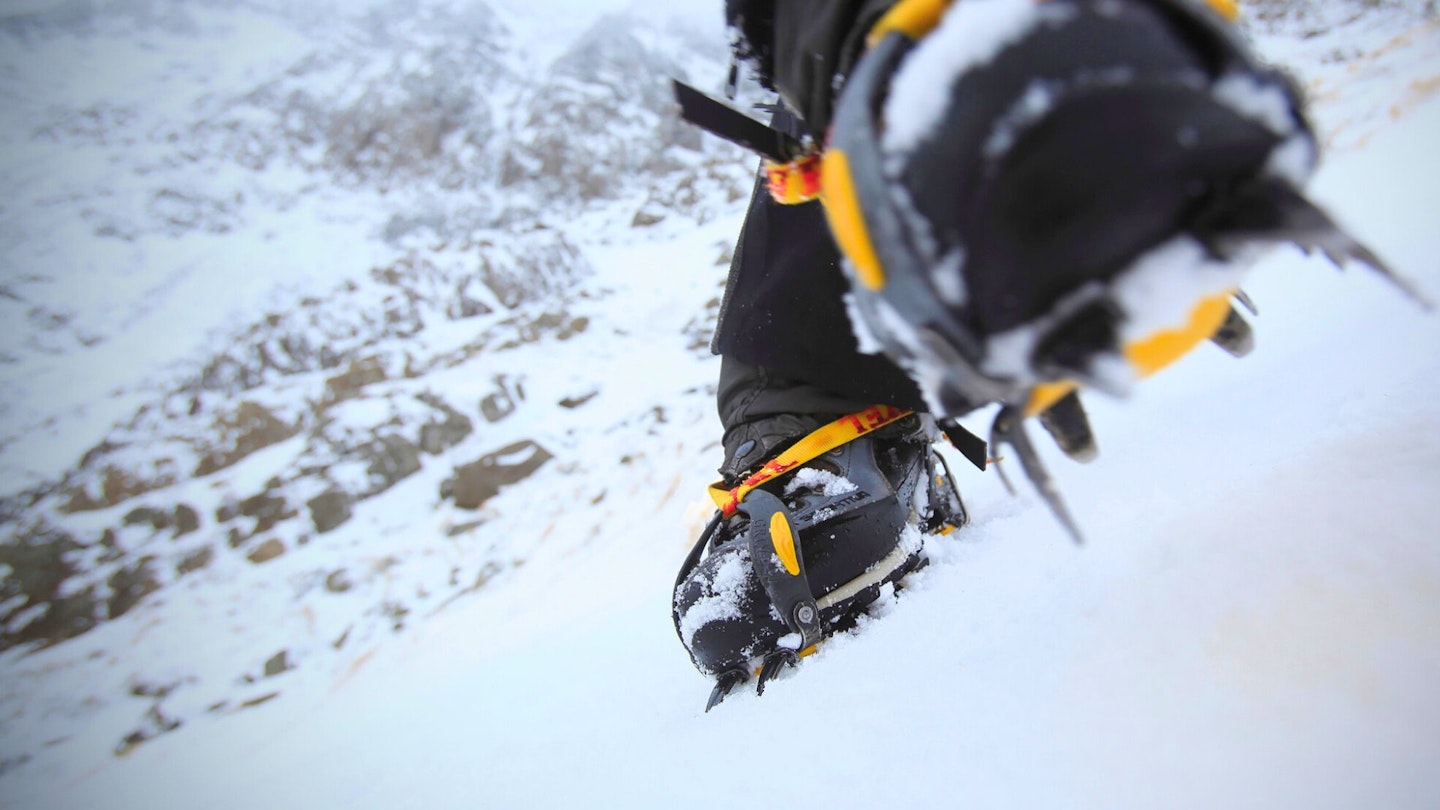
Mountaineering boots are graded B1 to B3.
B1 boots are the lightest and most flexible. They are compatible with flexible strap-on C1 crampons only. B1 boots are ideal for winter beginners and those on a budget, and will suffice for most hillwalking in snow.
Stiffer B2 boots balance technicality and comfort, and are suitable for more challenging terrain and graded winter routes. They are compatible with both C1 and semi-automatic C2 crampons which have a heel clip lever at the rear.
If your ambitions are loftier, including graded winter routes or Munro ascents, then a B2 boot has you covered.
B3 boots are completely rigid with indented ledges (welts) at the toe and heel for crampons. They are compatible with aggressive C3 crampons for ice climbing and technical mountaineering. Predictably, they're overkill for the average hillwalker.
How should a winter boot fit?
The stiffness of winter boots means a good fit is absolutely crucial – it’s the most important consideration. The boot should cup the heel with no slippage, and enough space at the forefoot.
Your best bet is to try for size in a shop, ideally with a skilled boot fitter. Aim for a fit that is comfy, secure and precise, but simultaneously not too restrictive or tight – it’s a tricky balance to strike.
An effective lacing system is key too – it should stretch from the toe to ankle, with ample eyelets, hooks and cleats for a fine-tuned, secure fit. This can be loosened when walking and then cinched-in snugly when crampons are on.
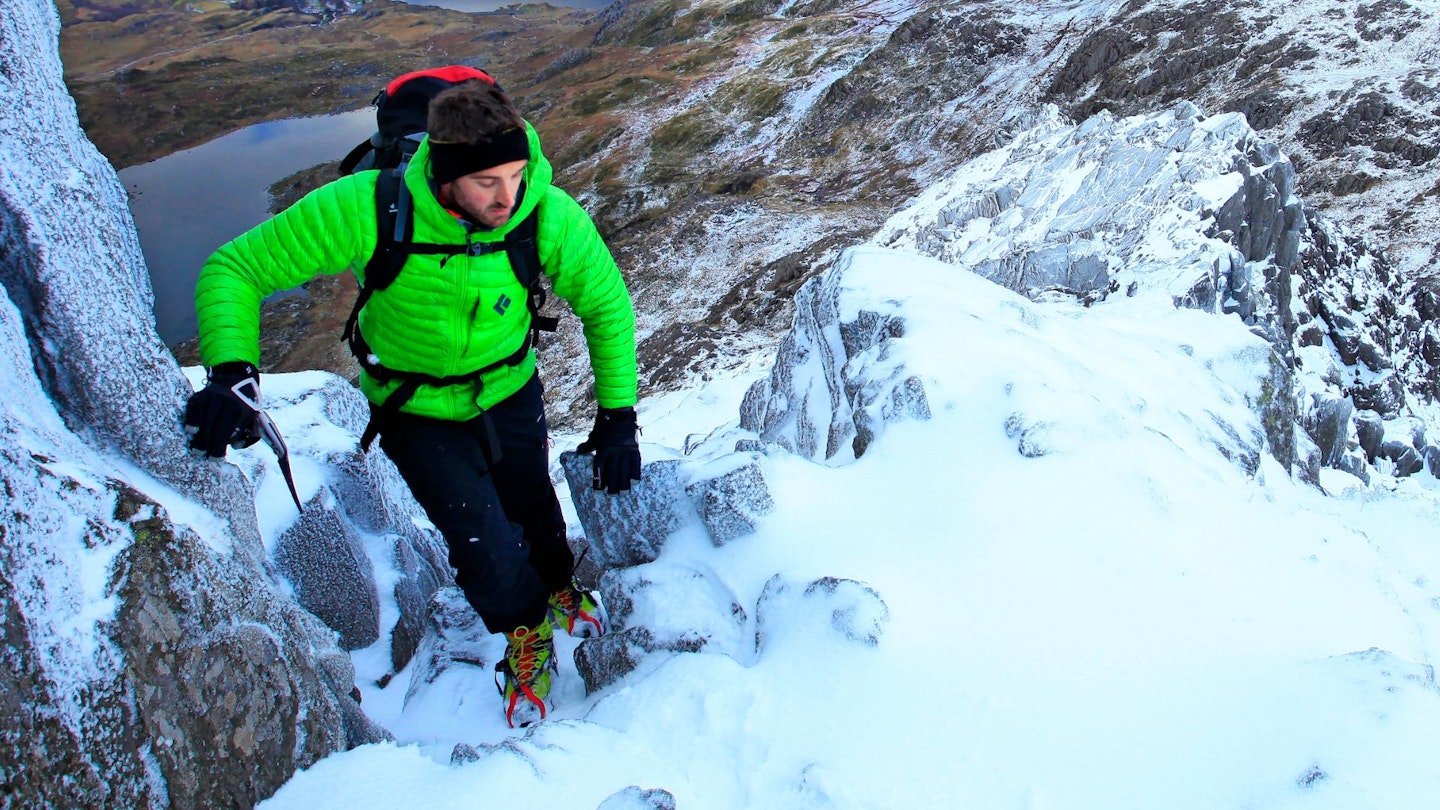
What sort of grip and sole should a mountain boot have?
The edges and lugs of a mountaineering boot’s sole should be stiff, aggressive and snow-shedding, made from hard-wearing rubber with a big, blocky design. This not only provides solid traction underfoot, but enables the boot to be used as a tool: kicking steps into snow with the toe, chopping ledges with the outer edge or stamping platforms with the heel.
A stiff boot also enables you to ‘edge’ (find secure footing) into snow and ice with each step, with a slicing or scuffing movement. A pronounced heel brake on the outsole enables downhill braking and is useful when heel plunging in snow for traction.
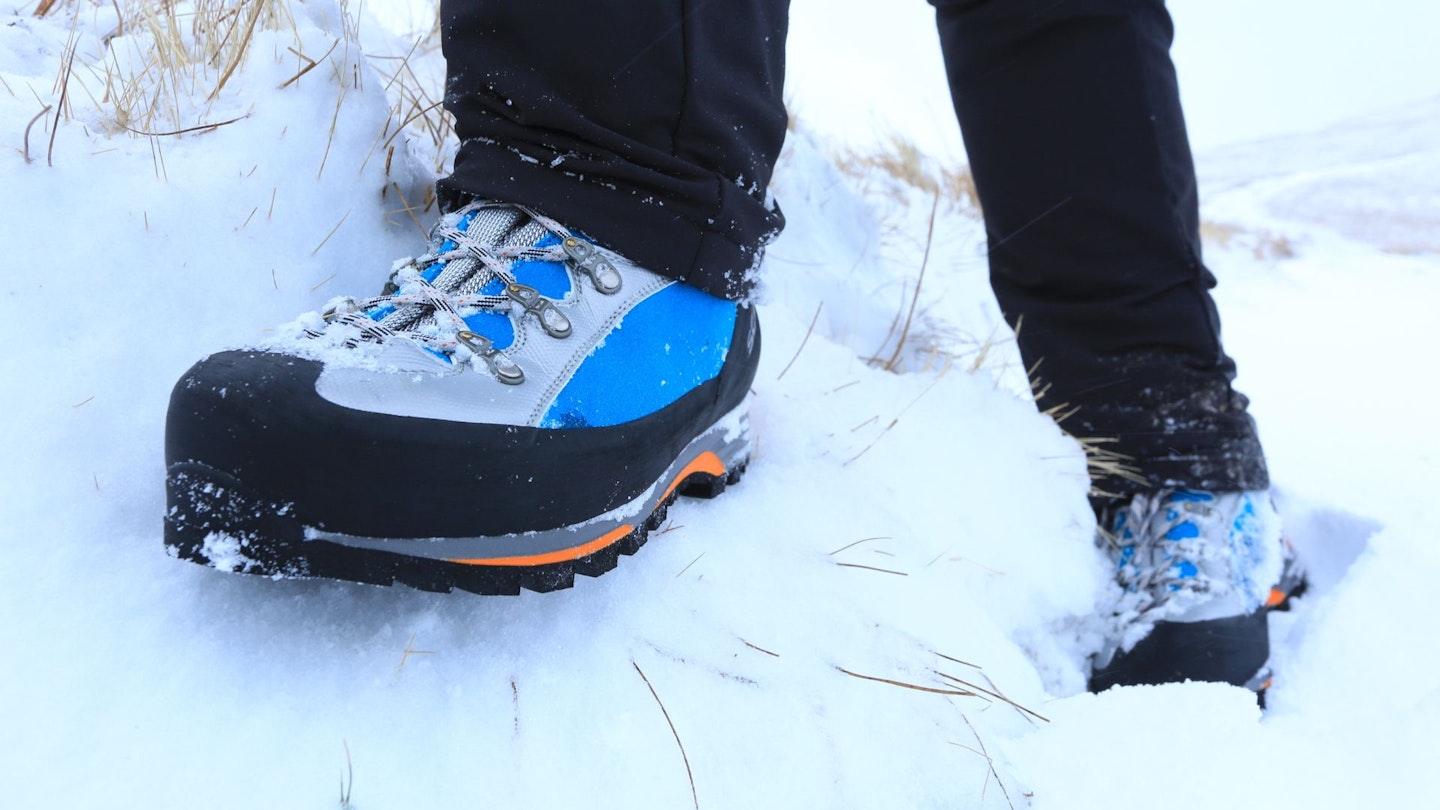
Are winter hiking boots heavy?
Weighing in from about 600g up to a kilogram per boot, winter and mountaineering boots are heavier than most general 3-season hiking boots. This is because of the additional warmth, durability, and protection required.
What durability and protection features should a winter boot have?
A strong toe bumper will protect your toes from rocky ground, while a rand – a rubber layer that wraps around the toe, sole or whole boot – will offer additional protection and durability. This is particularly important when kicking steps into hard snow. Also look for uppers with minimal stitching.
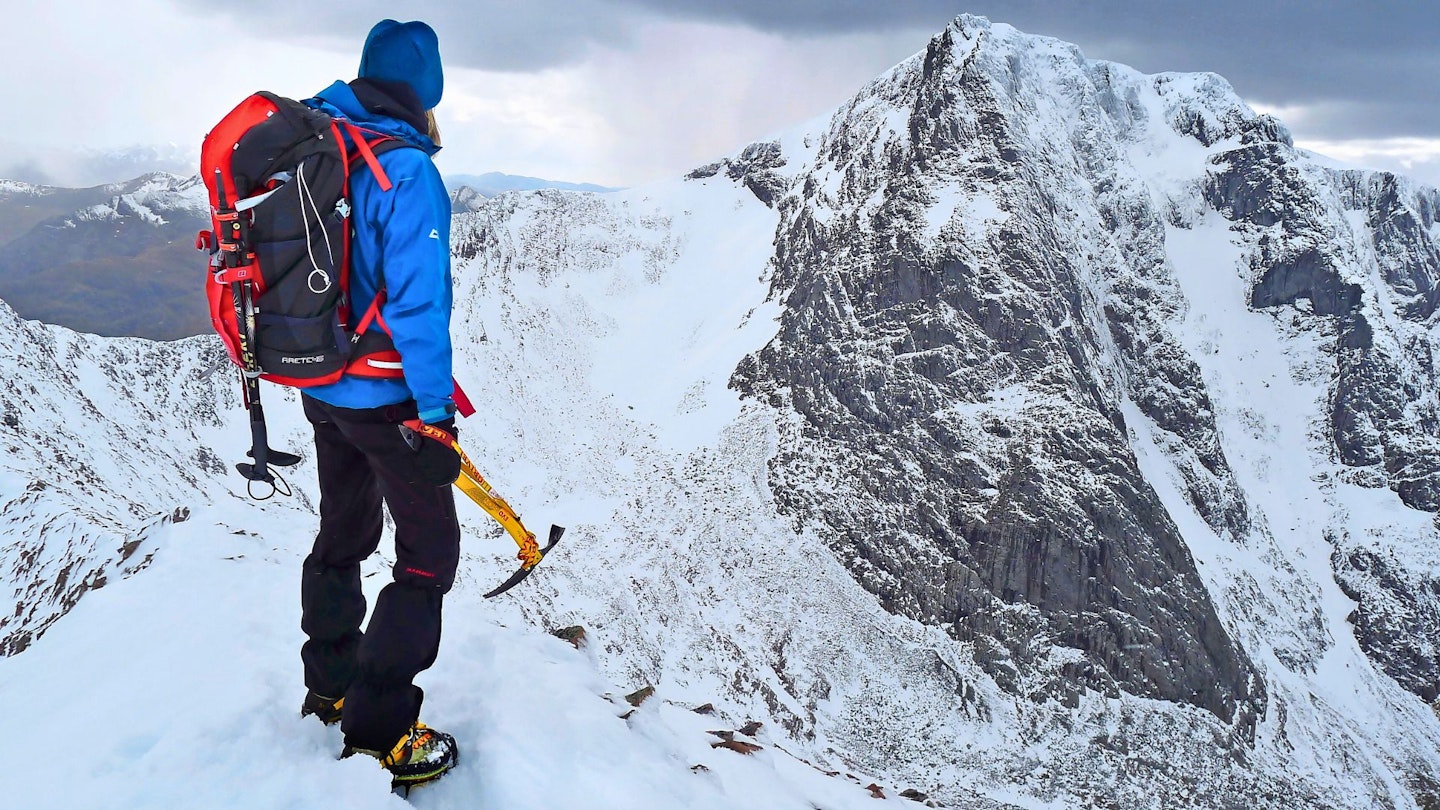
What sort of cushioning and support should a winter boot have?
In winter you’ll be carrying a heavier backpack, so additional support and cushioning is vital. A strong and sturdy ankle cuff – with a high profile – provides additional ankle stability, and reduces strain on the ankle on slopes and scrambling by adding support. This makes the boot less tiring to wear on rockier ground or snow.
A midsole with plenty of underfoot cushioning and shock absorption enhances all-day comfort. In terms of uppers, most modern manufacturers use a mix of leather and synthetic materials to ensure impressive durability. And of course, a breathable waterproof membrane (Gore-Tex or a brand's own) keeps your feet dry.
Winter hiking boot care and maintenance
It's important to remember boot care and cleaning. This is vital to boot performance and longevity. We recommend footwear cleaning products from Grangers and Nikwax. These products are both effective and environmentally friendly.
For cleaning any fabric, including leather and suede, use Grangers Footwear Care Kit or Nikwax Hiking Care Kit. If you want a proper wax for leather, use Grangers Waterproofing Wax or Nikwax Waterproofing Wax for Leather.
Many hiking boots can be resoled. This not only extends the life of the boot, but is economic for you too. In the UK, there are a number of specialists that can do this, including Lancashire Sports Repairs and Feet First.
How we test winter hiking boots
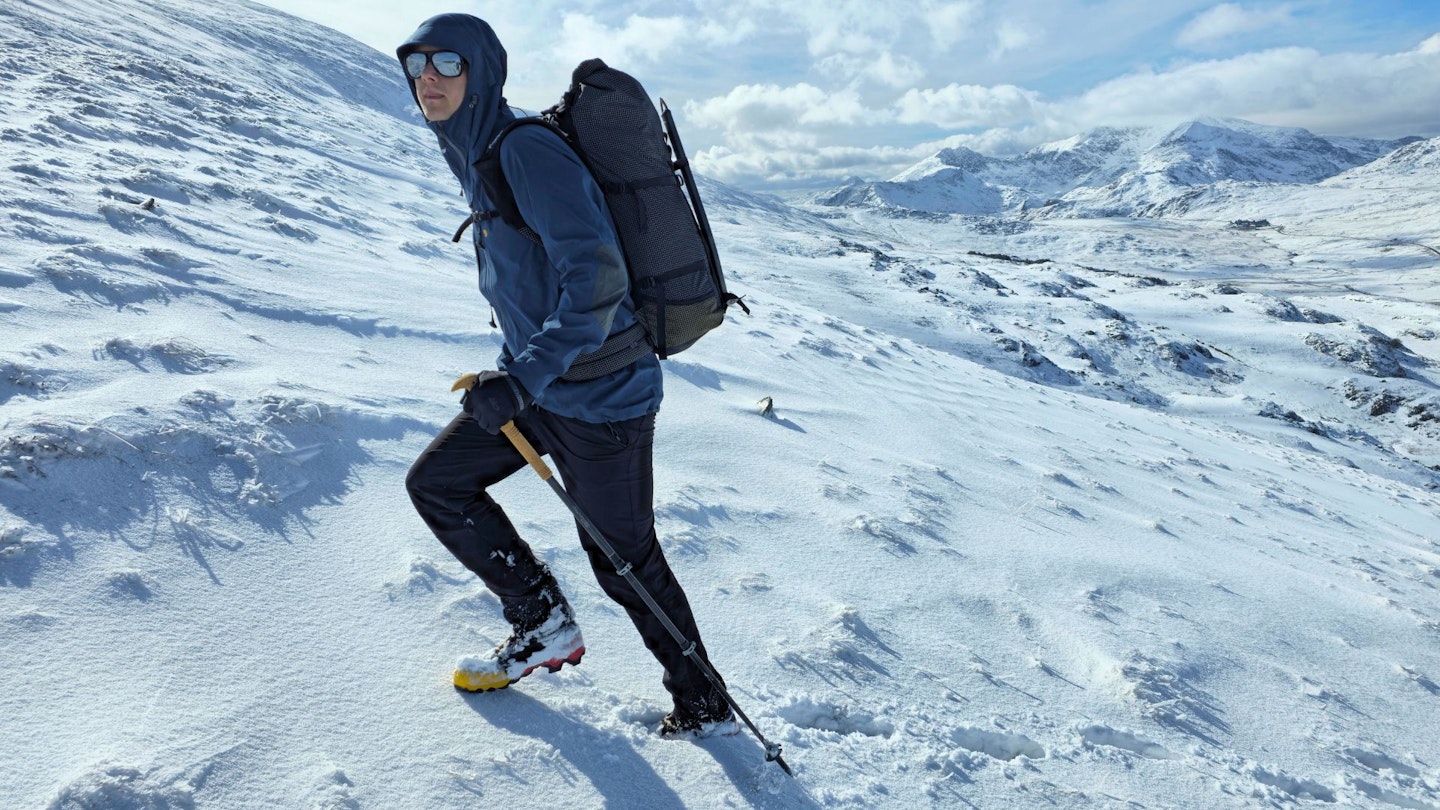
The majority of the boots recommended here were tested by Matt Jones. Matt is Matt is a self-confessed gear geek and one of our freelance gear testers. He has walked several long-distance backpacking trails in New Zealand, the USA and throughout the UK.
We test technical mountain boots over many, many outings in the Welsh, Lake District, and Scottish mountains - the most challenging places Britian.
Given mountaineering boots' stiffness and weight compared to regular hiking boots, comfort is foremost in our mind on test. Without comfort, a boot is no good.
Beyond this, performance and durability are extremely important. The boots must be able to cope with the demands of mountain outings time and time again.
We also look at how sustainable the boots are, not just in how they're made but also aspects such as whether they can be resoled.
